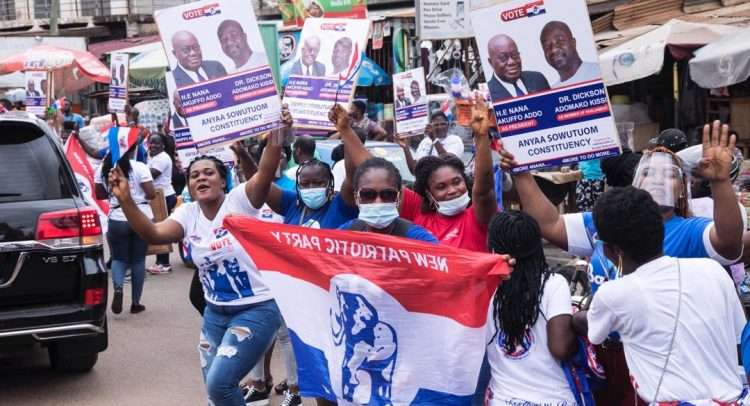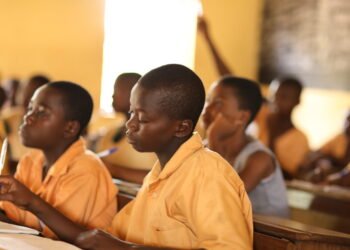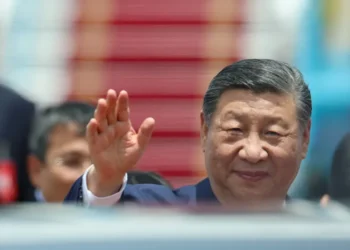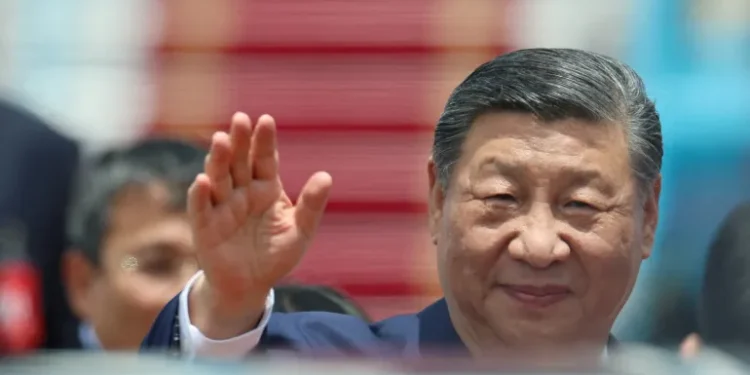The political winds in Ghana appear to be shifting and not in favour of the New Patriotic Party (NPP).
According to the April 2025 tracking poll by Global InfoAnalytics, young voters are increasingly aligning themselves with the ruling National Democratic Congress (NDC)—a trend that could prove decisive in the next electoral cycle.
Accordingly, Mussa Dankwah, Executive Director of Global InfoAnalytics, has described the findings as a red alert for the NPP.
In a political climate where youth energy and demographic strength determine the future, the opposition party seems to be losing its grip.
“April poll shows that 75% of the respondents were under the age of 45. A development that will certainly impact on who leads the two main parties in the future.”
Mussa Dankwah
According to the data, the NDC is now the dominant political force across all age groups, a development that could drastically influence internal party decisions, particularly in the selection of future leaders.
The generational advantage now belongs to the governing party, with the opposition struggling to maintain enthusiasm among the very demographic that once heralded its “youthful promise.”
NPP Loses Ground On Education
Mussa Dankwah made another revealing point: “The NDC now dominates among voters with all levels of educational qualification.”
He emphasized that the NPP’s struggles with voters holding tertiary-level education are not new—they became evident during the final stretch of the 2024 election campaign, and the trend has continued since the election.

That slow attrition appears to have calcified into a crisis of confidence among the more educated population.
“Among students, the NPP appears to be losing support faster than among other demographics; however, in a shocking turn of events, NDC is now losing ground among voters without jobs.”
Mussa Dankwah
What explains this shift? Dankwah posited two possible reasons. First, the government’s decision to terminate employment contracts of staff appointed by the previous administration may be breeding disaffection.
Second, the much-touted 24-hour economy agenda, which was a core promise of the NDC, has not been aggressively pushed since the party assumed power.
“The government should watch out,” Dankwah warned, implying that disappointment is already setting in among a crucial segment of their support base.
Regional Dynamics Show NDC’s Strength
Beyond the national picture, the poll also highlighted changing patterns of party affiliation across the regions—patterns that paint a far more complicated political map than before.
In a noteworthy shift, the NDC now dominates the Ahafo, Bono, and Bono East regions—areas once considered battlegrounds.

The NPP, meanwhile, retains its hold on the Ashanti Region, its traditional stronghold, but even that grip is being watched closely by analysts who fear it may no longer be ironclad.
Dankwah pointed out that “NDC dominates party affiliations in Central and Greater Accra, near parity in Eastern Region but NPP leads in the North East.”
These are more than just statistics—they are markers of a shifting political landscape where old assumptions are being upended.
The Northern part of the country is another area where the NDC seems to be consolidating power. According to the data, the NDC dominates in the Northern, Oti, Savannah, and Upper East regions.
The Upper West, Volta, and Western regions are also firmly in their column. On the other hand, the NPP shows dominance only in the Western North region, signaling a regional contraction that should concern strategists at the Jubilee House.
The implications are clear: regional loyalties are not static, and the NDC’s ability to stretch its influence beyond its traditional bases could prove vital in any future contest.
What Lies Ahead For Both Parties?
If this trend continues, the NPP will have to rethink its communication strategy, policy implementation, and perhaps even leadership structure to win back the young voters it appears to be losing.
No modern political party can afford to neglect a youth bloc that makes up three-quarters of its potential electorate.
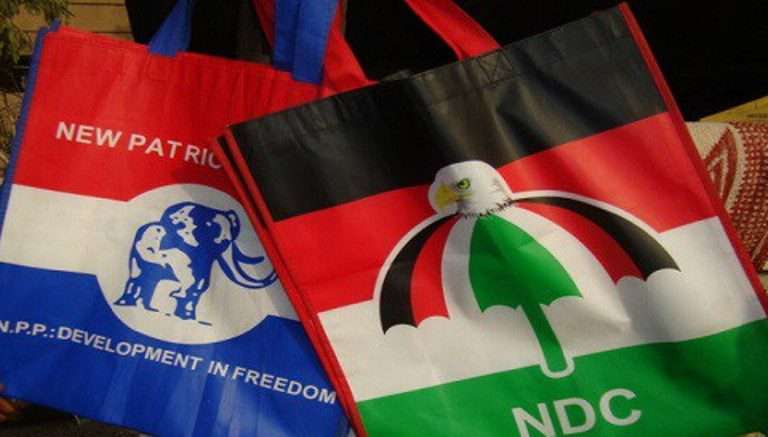
Meanwhile, the NDC, despite its current edge, must not grow complacent. Losing support among unemployed voters is a warning bell that could become a blaring siren if not addressed.
Campaign promises must translate into tangible actions, or the party risks appearing no better than its predecessors.
What these numbers ultimately tell the public is simple: the Ghanaian electorate is watching, weighing, and willing to shift, especially the young voters who now hold the balance of power. The question is: Who is ready to listen and lead?
READ ALSO: Israel Deports Labour MPs, Badenoch Defends Decision

